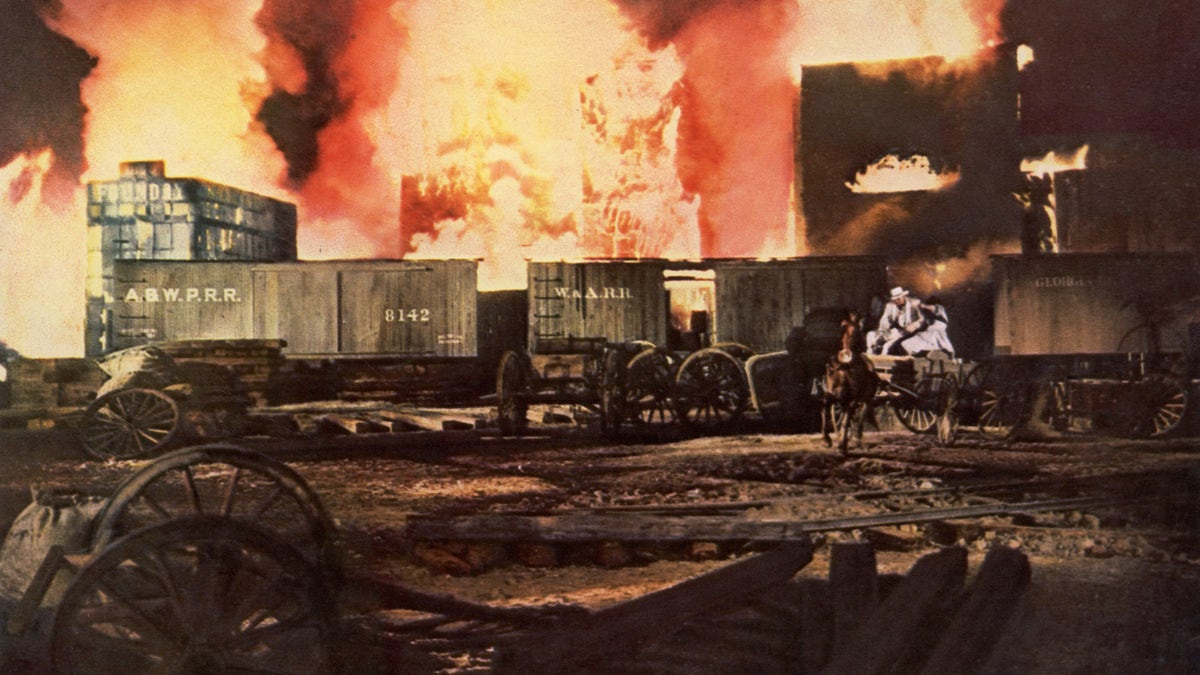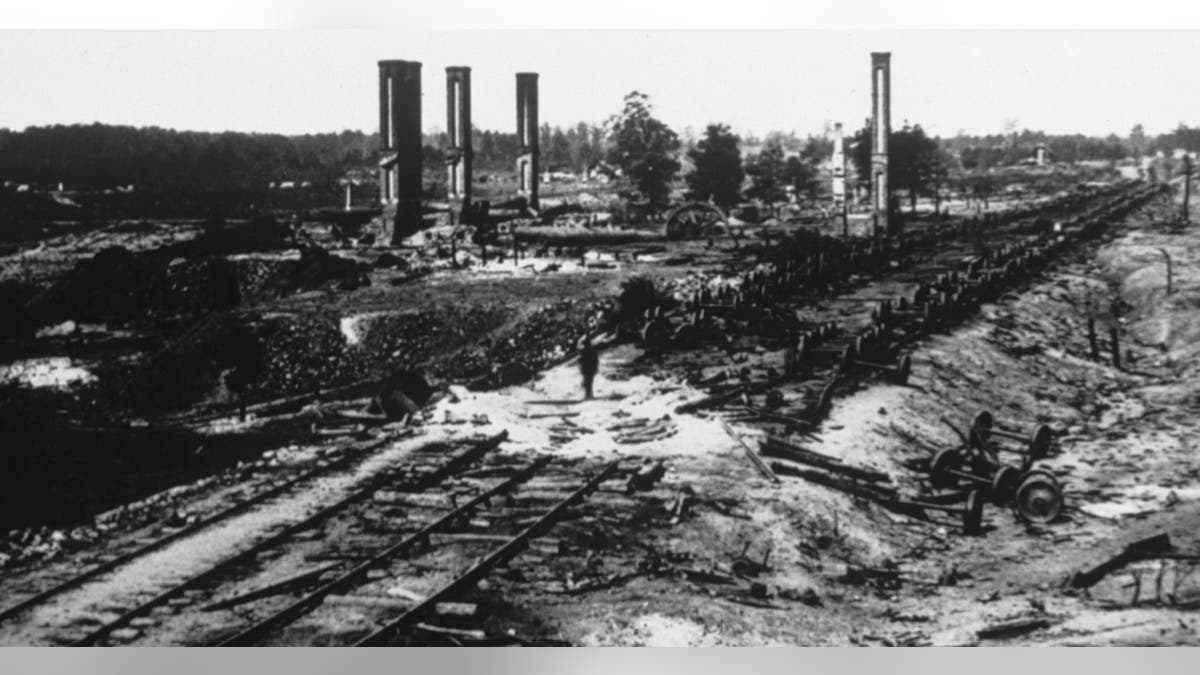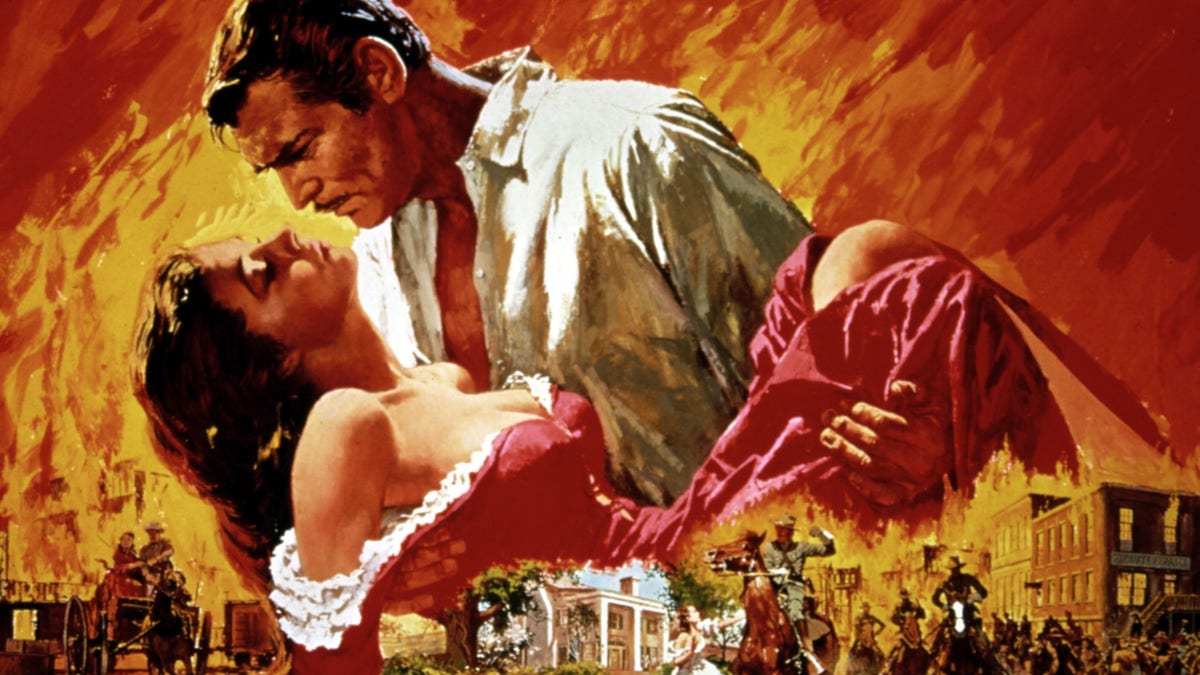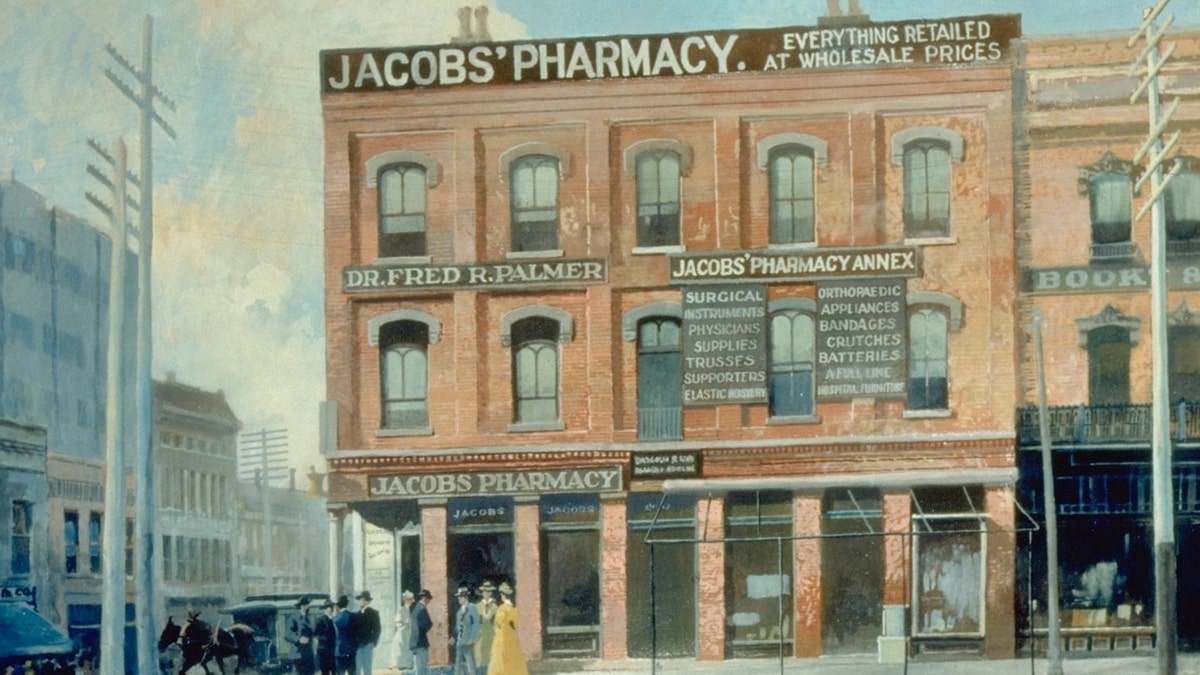This American gave us 'The Battle Hymn of the Republic' — here's her story
Poet and playwright Julia Ward Howe, born in New York City, wrote a powerful song that lives on to this day.
Fiery destruction consumed Atlanta as rebel forces fled the city on this day in history, September 1, 1864.
The collapse of the Georgia transportation hub marked a defining moment in the Civil War and later fueled one the great sweeping epics in global storytelling, "Gone with the Wind."
"Cut off from all lines of supply, the Confederate army was forced to evacuate or risk being trapped in the city and starving," the Atlanta Journal-Constitution wrote in a chronicle of one of the most momentous days in American history.
ON THIS DAY IN HISTORY, AUGUST 31, 1966, HARRIER JUMP JET MAKES FIRST FLIGHT
"[General John Bell] Hood ordered a retreat on Sept. 1, and by midnight the last of his infantry units were marching down the McDonough Road (present-day Capitol Avenue and McDonough Boulevard) and out of town."
"Panicked civilians, dreading the Yankees' occupation of the city, attached themselves to the retreating Southern columns," writes The American Battlefield Trust.

In "Gone with the Wind," the hero and heroine drive through the burning city of Atlanta in a dramatic scene from the MGM film. (MGM Studios/Archive Photos/Getty Images)
"Before they left, Confederate soldiers threw open the army's commissary warehouse for civilians to take whatever they wanted."
Rebel troops torched their ammunition trains, setting much of the city ablaze.
US ARMY DIVISION TO KEEP PATCH REFERENCING CONFEDERATE ARMY
"Twenty-eight cars were filled with ammunition; set afire, their explosions were so loud that Gen. [William T.] Sherman at Jonesboro [about 17 miles away] claimed to have heard them," the Trust reports.
Union soldiers marched into Atlanta the following day and raised the American flag over the city for the first time since Georgia seceded in January 1861.

The ruins of Hood's 28-car ammunition train and the Scholfield rolling mill near Atlanta, Georgia, are shown on Sept. 1, 1864. (Archive Photos/Getty Images)
"Atlanta is ours and fairly won," Sherman telegraphed to Washington, D.C., on Sept. 3.
The fiery collapse of Atlanta was seared into the consciousness of Americans, and of people around the world, through the global success of "Gone with the Wind."
"Panicked civilians, dreading the Yankees' occupation, attached themselves to the retreating Southern columns."
Margaret Mitchell's novel was published in 1936 and won the Pulitzer Prize for fiction in 1937.
A 2014 Harris Interactive poll named it the most beloved book in American history — behind only the Bible.
Hollywood turned the book into one of the film industry's most memorable blockbusters in 1939.

"Gone with the Wind" poster featuring Vivien Leigh and Clark Gable, 1939. The fiery collapse of Atlanta served as the climactic backdrop of the American epic. (Photo by LMPC via Getty Images)
Inflation-adjusted tickets sales of $3.4 billion make "Gone with the Wind" the top-grossing movie of all-time, Guinness World Records reported in 2014.
Atlanta's collapse serves as the dramatic climax of the extraordinary American story, with the fate of the young city intertwined with that of young protagonist Scarlett O'Hara.
MEET THE AMERICAN WHO WROTE ‘THE BATTLE HYMN OF THE REPUBLIC’
"Atlanta was of her own generation," author Mitchell wrote of O'Hara. "Crude with the crudities of youth and as headstrong and impetuous as herself."

The first business to sell Coca-Cola was at the soda fountain in Jacob's Pharmacy, 1886, in Atlanta, Georgia. (John van Hasselt/Sygma via Getty Images)
Atlanta was indeed a city in its youth in 1864. It was founded in 1837, just eight years before the fictional O'Hara was born in the novel.
Atlanta was home to fewer than 10,000 residents at the start of the Civil War.
Atlanta today is home to 500,000 people and is a global economic powerhouse.
The city's stunning resurgence in the wake of its destruction has proven to be one of the most remarkable stories of urban growth in world history.
CLICK HERE TO SIGN UP FOR OUR LIFESTYLE NEWSLETTER
Atlanta today is home to 500,000 people and is a global economic powerhouse.
Pharmacist John S. Pemberton invented the formula for Coca-Cola in Atlanta in May 1886 — and it was first served at Jacob's Pharmacy, just 22 years after the city was destroyed.
Coca-Cola today is the world's largest consumer brand.
CLICK HERE TO GET THE FOX NEWS APP
Modern Atlanta is also home of the world headquarters of Delta Airlines, UPS and The Home Depot, among other major companies, while the city lays claim to the busiest airport in the world.
Hartsfield-Jackson Atlanta International Airport sits at the crossroads of Europe, Africa and South and North America — and handles over 75 million passengers per year, according to data from Airports Council International.









































